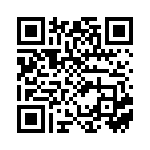This medicine is used for the following purposes:
- diabetes
- diagnostic imaging
- diagnostic test
- low blood sugar
Brand Name(s): Gvoke
Generic Name: Glucagon
Instructions
This medicine is injected into the skin. Ask your doctor, nurse, or pharmacist where on your body this medicine can be injected and how to inject it.
The medicine needs to be mixed before being injected.
Follow package direction for diluting medicine with IV fluids or as instructed by your doctor or nurse.
Do not dilute the medicine until ready to use.
Do not mix this medicine with other solutions.
Always inspect the medicine before using.
The liquid should be clear or light yellow.
Do not use the medicine if it contains any particles or if it has changed color.
Keep medicine at room temperature. Protect from light.
Do not freeze the medicine.
Do not remove protective outer wrap until ready to use.
Inject the medicine immediately after mixing.
Never use any medicine that has expired.
Discard any remaining medicine after your dose is given.
This medicine should only be used by a person who has been trained to recognize when and how it should be used.
Only use this medicine if the patient is unable to eat, unconscious, or having a seizure. Otherwise give juice, candy or glucose tablets by mouth to treat low blood sugar.
If a patient is unconscious, turn them on their side to prevent choking.
Once fully awake and able to swallow, the patient should eat or drink to increase blood sugar levels.
If the patient does not awaken within 15 minutes of using the medicine, give a second dose. Seek immediate medical care.
Family, friends, and coworkers should all learn how to give this medicine to the patient.
Do not inject through clothing.
Drug interactions can change how medicines work or increase risk for side effects. Tell your health care providers about all medicines taken. Include prescription and over-the-counter medicines, vitamins, and herbal medicines. Speak with your doctor or pharmacist before starting or stopping any medicine.
Symptoms of low blood sugar may include nausea, shaking, sweating, cold skin, fast heartbeat, hunger, and irritability.
Check the medicine once a month, and replace it before it expires.
Keep all appointments for medical exams and tests while on this medicine.
Cautions
It is very important that you always have this medicine with you in case you need to use it. DO NOT leave it at home.
Tell your doctor and pharmacist if you ever had an allergic reaction to a medicine.
Patients with very low blood sugar may become very confused, lose consciousness, or have seizures.
Monitor your blood sugar as instructed by your doctor.
Do not use the medication any more than instructed.
Your ability to stay alert or to react quickly may be impaired by this medicine. Do not operate machinery or drive while on this medicine.
Tell the doctor or pharmacist if you are pregnant, planning to be pregnant, or breastfeeding.
Always carry an ID card or wear a medical alert bracelet showing that you are diabetic.
Ask your doctor, nurse or pharmacist how to safely discard unused medicines, needles and syringes.
Do not share this medicine with anyone who has not been prescribed this medicine.
Side Effects
The following is a list of some common side effects from this medicine. Please speak with your doctor about what you should do if you experience these or other side effects.
- pain, redness, swelling near injection
- nausea and vomiting
Call your doctor or get medical help right away if you notice any of these more serious side effects:
- fast or irregular heart beats
A few people may have an allergic reaction to this medicine. Symptoms can include difficulty breathing, skin rash, itching, swelling, or severe dizziness. If you notice any of these symptoms, seek medical help quickly.
Please speak with your doctor, nurse, or pharmacist if you have any questions about this medicine.
IMPORTANT NOTE: This document tells you briefly how to take your medicine, but it does not tell you all there is to know about it. Your doctor or pharmacist may give you other documents about your medicine. Please talk to them if you have any questions. Always follow their advice.
There is a more complete description of this medicine available in English. Scan this code on your smartphone or tablet or use the web address below. You can also ask your pharmacist for a printout. If you have any questions, please ask your pharmacist.
The display and use of this drug information is subject to Terms of Use.
More information about GLUCAGON - SUBCUTANEOUS INJECTION

Copyright(c) 2024 First Databank, Inc.
Selected from data included with permission and copyright by First DataBank, Inc. This copyrighted material has been downloaded from a licensed data provider and is not for distribution, except as may be authorized by the applicable terms of use.
Conditions of Use: The information in this database is intended to supplement, not substitute for the expertise and judgment of healthcare professionals. The information is not intended to cover all possible uses, directions, precautions, drug interactions or adverse effects nor should it be construed to indicate that use of a particular drug is safe, appropriate or effective for you or anyone else. A healthcare professional should be consulted before taking any drug, changing any diet or commencing or discontinuing any course of treatment. The display and use of this drug information is subject to express Terms of Use.